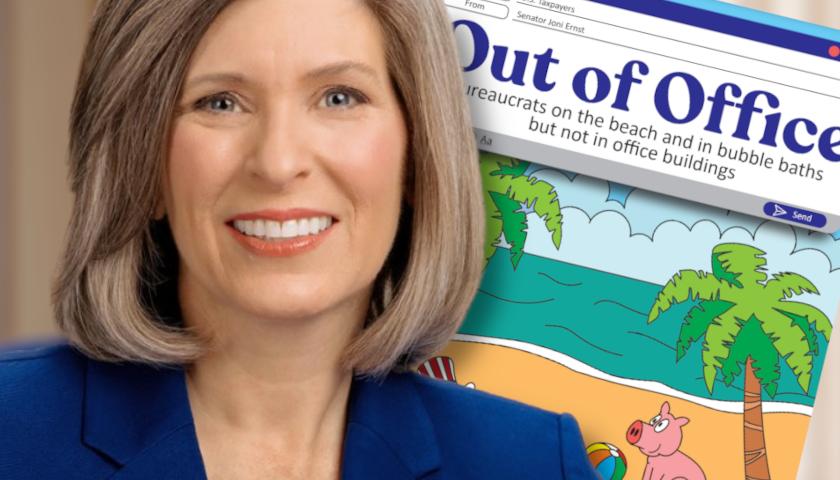by Mike Howell
The Senate will soon get a chance to put its stamp of approval on the great work of the Environmental Protection Agency under President Donald Trump.
Andrew Wheeler, the current acting administrator, will soon be up for a vote to be confirmed as the EPA’s 15th administrator. He’s been serving as deputy administrator since April 2018 and acting administrator since Scott Pruitt resigned last July.
Wheeler’s likely advance comes at a time when the Senate chamber – and the entire country – is debating the left’s radical Green New Deal proposal.
The “Green Raw Deal,” as some have taken to calling it, aims to usher in enormously costly socialist policies in the name of environmental protection. Some of the proposals include the elimination of air travel, guaranteed income for those unwilling to work, and replacing every single building in America. It’s a fantasy wish list that screams government overreach.
[ The liberal Left continue to push their radical agenda against American values. The good news is there is a solution. Find out more ]
The proposals have been embraced by leading politicians on the far left, but mostly mocked in the mainstream as more details and analysis have emerged. Chief among the concerns is that these policies would accomplish very little in actually improving the environment.
These radical and unrealistic proposals stand in sharp contrast to Wheeler and the EPA’s practical record, which has produced sustained improvement of the environment while at the same time saving American tax dollars.
These recent successes are cause to celebrate, and conservatives can credit Wheeler for his leadership during this pivotal time.
Air quality is improving, and taxpayers, businesses, and households are getting a better deal as a result of fewer regulatory burdens. Since the president signed Executive Order 13771, the EPA has removed two regulations for every one added, saving Americans close to $2 billion of their hard-earned money.
Estimates for next year expect those savings to creep closer to $3 billion.
One of the EPA’s most important victories came at the end of last year when it restored common sense to federal water regulation under the Clean Water Act. Conservatives cheered when the EPA proposed a new definition of “Waters of the United States,” which clearly defined which bodies of water should fall under federal jurisdiction.
This was in stark contrast to the massive overreach of the Obama administration. The 2015 Obama regulation that defined “Waters of the United States” dramatically expanded the definition of what fell under federal water protection, giving the EPA almost limitless regulatory power. The result was that Washington regulators could reach into Americans’ very own backyards and apply costly compliance standards.
The EPA also delivered a big win for car buyers when it rolled back the Obama-era Corporate Average Fuel Economy (CAFE) standards, which would have upped fuel economy standards to a whopping 54.5 miles per gallon by 2025. That move by the Obama administration was based on the false assumption that U.S. oil production would fall off – it hasn’t – and would have stuck U.S. consumers with the bill in the form of more expensive cars.
The Trump EPA reversed course by proposing the Safer Affordable Fuel-Efficient (SAFE) Vehicles rule. While fuel economy standards are completely unnecessary to begin with, these new standards would freeze the Obama-proposed standards at 2020 levels. The Heritage Foundation estimates that ditching the CAFE standards will save car buyers $7,200 per vehicle.
The EPA’s reversal of Obama administration overreach has been one of the great success stories of the Trump administration. The leaders at the EPA have shown that improving the environment and the economy are not at odds, and that smart policy and leadership is a far better path than the radical agenda of the Green New Deal.
The Senate will soon get to weigh in on which of those paths it thinks is best.
– – –
Mike Howell is a senior advisor for executive branch relations at The Heritage Foundation.






Does the “Senior advisor for executive branch relations” have any scientific experience in his background?